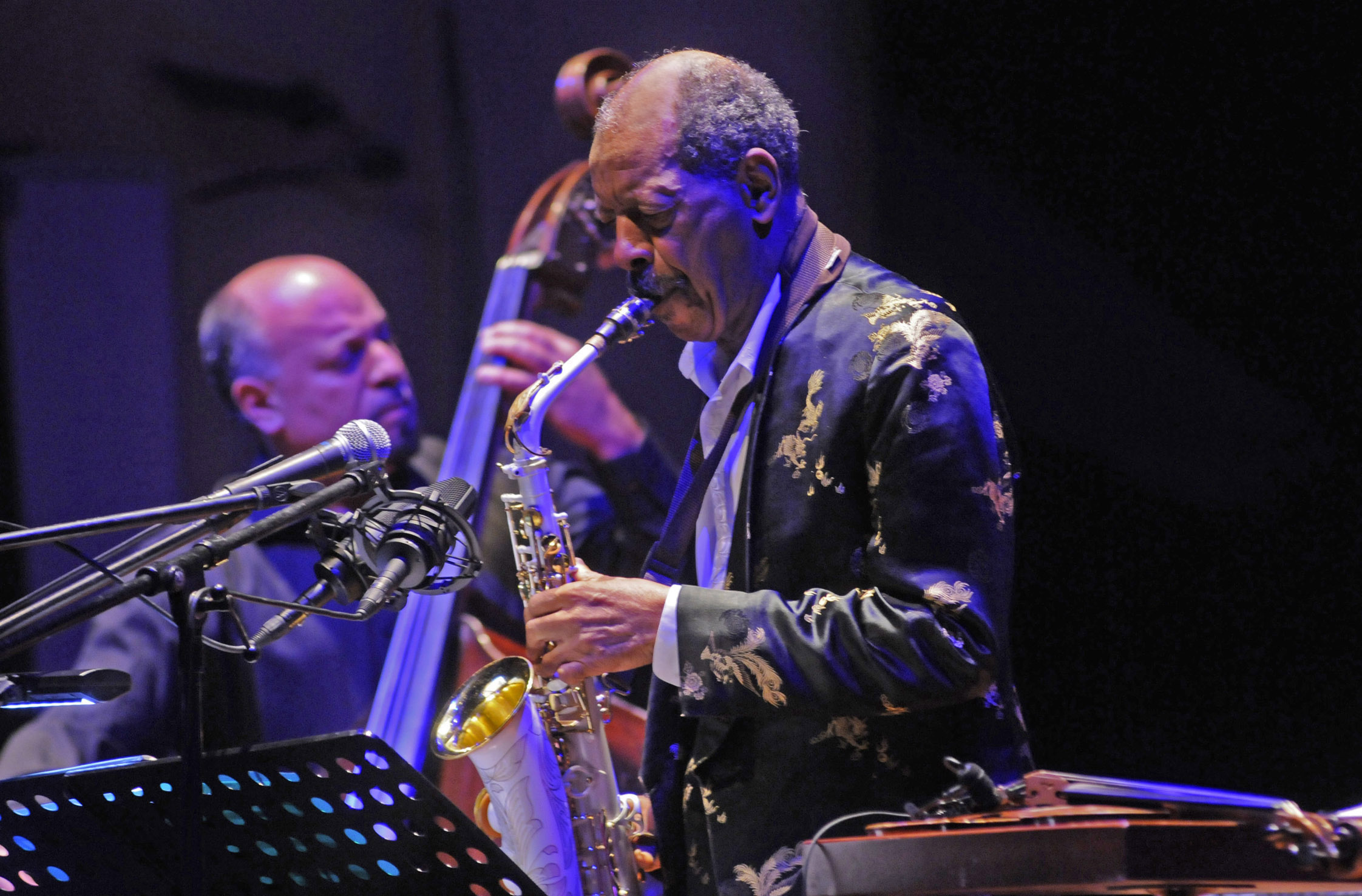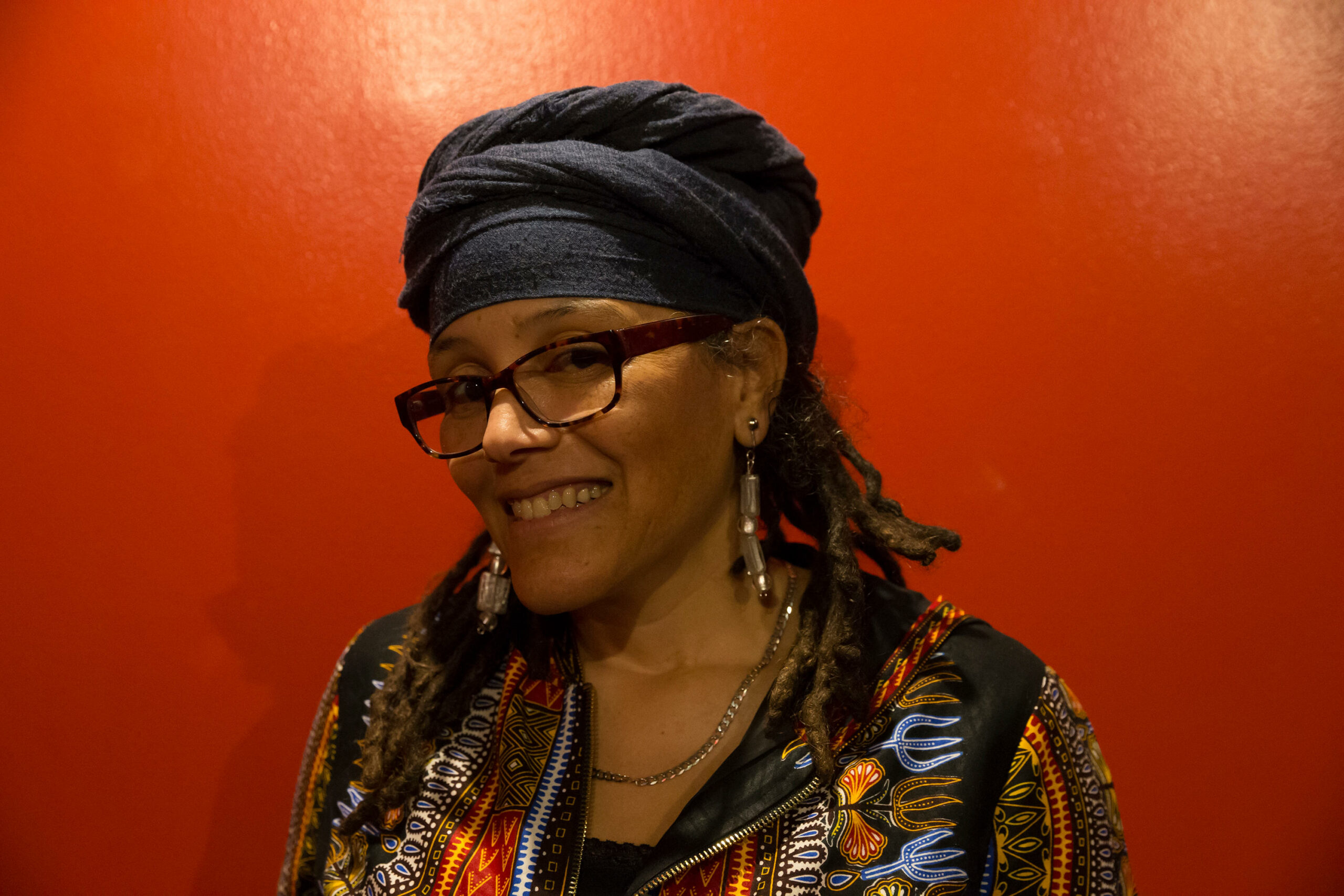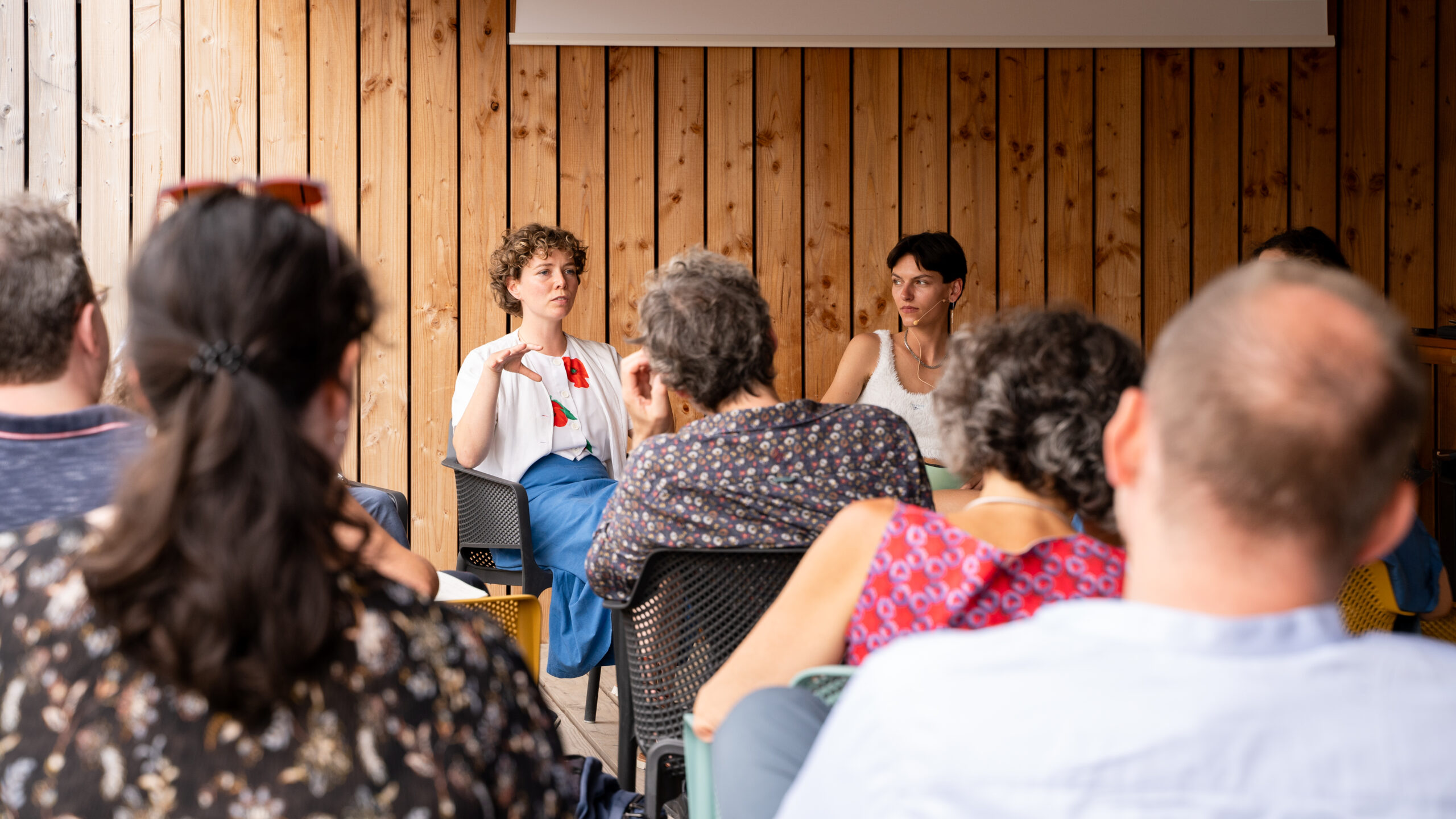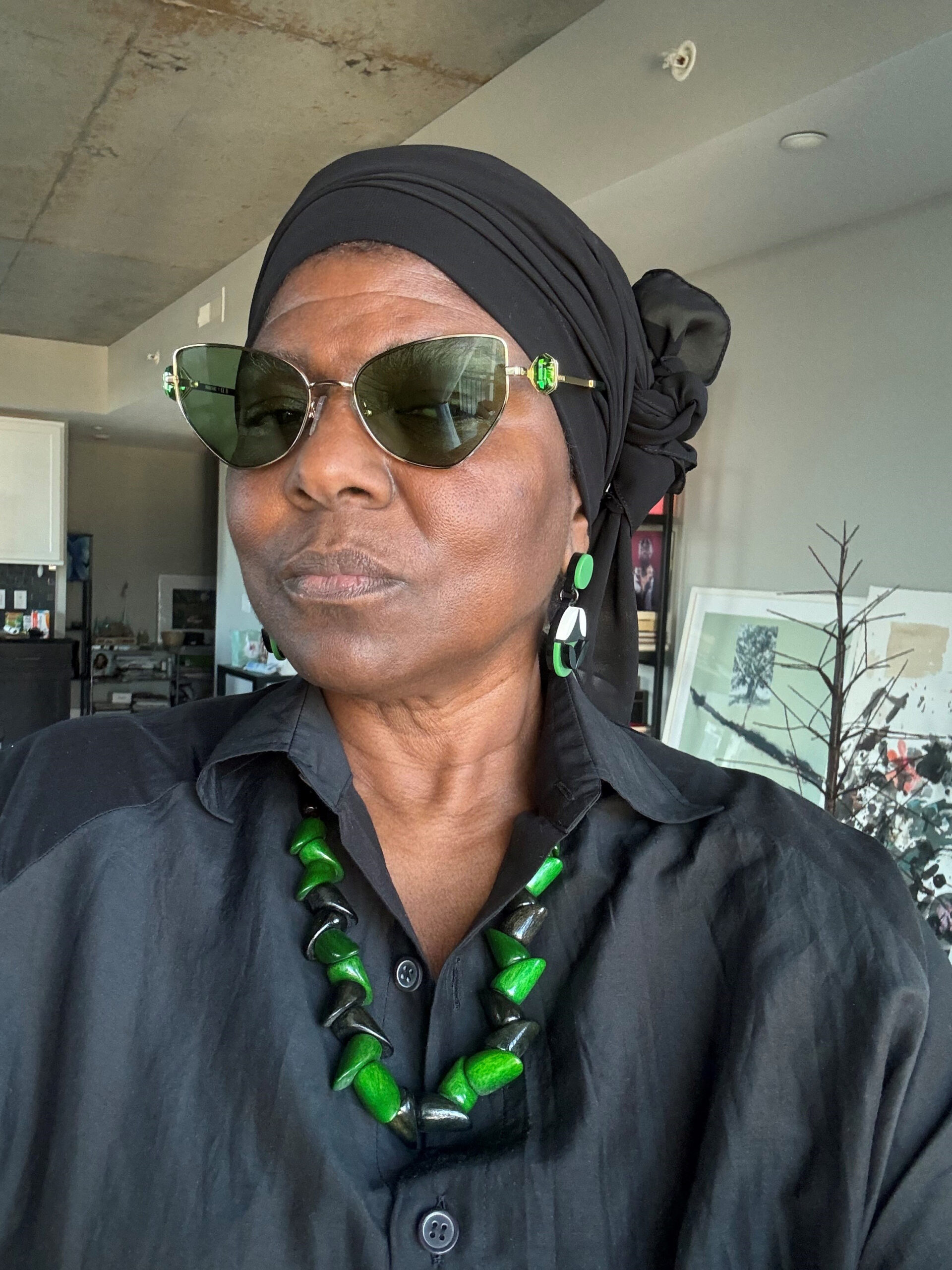In 2005, Ornette Coleman recorded his now legendary album "Sound Grammar" at Enjoy Jazz, for which he was awarded the Pulitzer Prize in 2007. A year later he came back to Heidelberg to play another concert, this time with a strong blues orientation. After this performance he gave only one short interview, which appeared in the magazine "Jazz Podium" in 2008. Below you will find the interview in the original.
Three years ago, the then 75-year-old free jazz pioneer Ornette Coleman recorded his now award-winning album "Sound Grammar" as part of the Enjoy Jazz Festival. Now, three years later, he gave another frenetically acclaimed concert in the Heidelberg Stadthalle in the same setting. A series of short, pointed pieces, a highly energetic, associative par force ride, an almost melody-free séance, led by a saxophone played with his customary pointedness, whose unacademic tone, which can never be precisely located, swept into the audience in the style of spontaneous bow waves and triggered the most intense shivers.
It was clear to everyone that they were witnessing jazz history. Speaking of jazz history: Coleman's famous music theory construct called "Harmolodics" has now occupied generations of musicologists - like a great novel that was never written.
But as in the case of the great universal mathematical riddles, the solution remained denied to us until today. And perhaps exactly therein lies its real meaning: For can a professing individual not at all only follow a theory which he does not understand? In this sense, the rare interviews with Ornette Coleman are also a challenge. They are like his music. A single free association, into which folkloristic motifs are occasionally interspersed. A sometimes simple, sometimes impenetrably spiritualized and sometimes simply ludicrous monologue that cannot be shaken by questions as an evocation of the free spirit, whose highest and perhaps even only meaning seems to consist in precisely this freedom.
Their last album "Sound Grammar" is already considered a milestone in contemporary music and has heralded a new Coleman renaissance. You define the title as a "universal method for the sound of all languages". Can this also be seen as a specification of your almost mythical "Harmolodics" theorem?
Yes, it is to be understood as a subset of this system. Because the most important thing we all have in common is the idea of being human, as expressed in sound. And this idea belongs to everyone in equal measure. There is something in each individual that has the quality to make him a better person by virtue of his heart and soul. It only needs to be expressed. That is the idea behind "Sound Grammar".
Is it therefore also to be understood as a system to artistically shape one's own possibilities and creativity?
Yes, yes, absolutely right. That is exactly what is to be ensured.
Their music performance today seems like an inseparable unity of musical, social and philosophical elements ...
... all deeply human components, right?
Right. I'm just wondering how you organize this mix?
This arises naturally from the human character. Human beings are in the wonderful position of being able to allow whatever they believe in without any hint of destructiveness. Do you agree with me? It is a central insight of being human not to necessarily reject or destroy that which one does not understand or does not immediately understand. Just as you don't have to inflict pain on someone just because they don't dance to my tune. Because nothing on earth is as highly developed as the human being. He has the most highly developed possibilities and the best conditions to develop freely.
Can you imagine that in the course of jazz history there will be another development as significant as the one your name stands for?
Yes, I certainly believe that. Of course, it will probably have a different name than "Harmolodics". By the way, I believe that because I only believe in one story, that of ideas. And it will continue. Because ideas are meant to be shared. Ideas belong to everyone.
Interview: Volker Doberstein
Photo: Manfred Rinderspacher

Date: March 9, 2023





